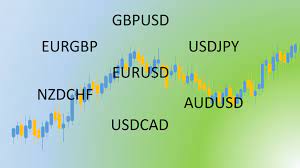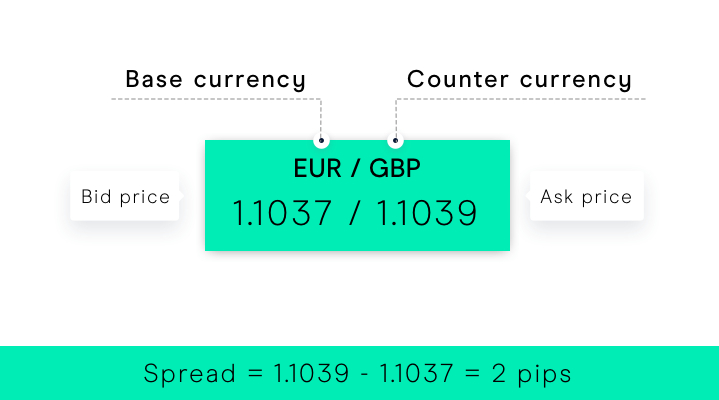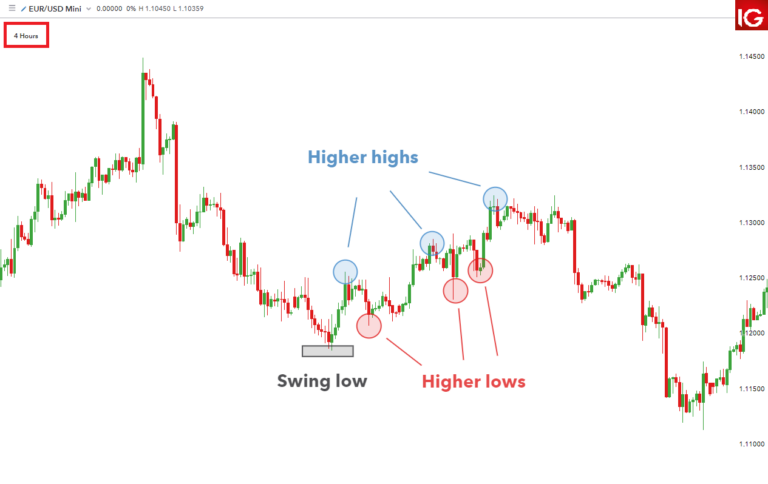Introduction
The allure of the Forex market for US investors lies in its potential for significant returns and diversification opportunities. With its immense liquidity and around-the-clock trading, the Forex market attracts both seasoned traders and novices seeking to capitalize on currency fluctuations. For US citizens, accessing the Forex market can be particularly enticing, especially when considering the potential for leveraging managed accounts to navigate the complexities of currency trading while mitigating risk.
In this article, we’ll delve into the world of Forex managed accounts, focusing specifically on US citizens. We’ll explore what these accounts entail, the regulatory framework governing them, the types of managed accounts available, considerations when choosing a provider, as well as the benefits, challenges, and steps for getting started.
Understanding Forex Managed Accounts in the US Context
What Are Forex Managed Accounts?
Forex managed accounts involve entrusting a professional trader or firm with the responsibility of making trading decisions on behalf of the investor. These accounts are tailored to individuals who may lack the time, expertise, or desire to actively trade currencies themselves. Managed accounts offer the potential for passive income generation while benefiting from the expertise of seasoned traders.
For US citizens, Forex managed accounts present an avenue to participate in the global currency markets while adhering to regulatory standards set forth by governing bodies such as the Commodity Futures Trading Commission (CFTC) and the National Futures Association (NFA).
Regulatory Considerations for US Citizens
The regulatory considerations for US citizens engaging in Forex trading, particularly through managed accounts, are crucial aspects that ensure the safety, fairness, and transparency of the market. The primary regulatory bodies overseeing Forex trading activities in the United States are the Commodity Futures Trading Commission (CFTC) and the National Futures Association (NFA). Understanding the role and responsibilities of these organizations is essential for US citizens to navigate the Forex market effectively.
- Commodity Futures Trading Commission (CFTC):The CFTC is a federal regulatory agency established to oversee the commodities and futures markets, including the Forex market. Its primary objectives are to protect market participants from fraud, manipulation, and abusive trading practices while promoting fair and transparent trading conditions. The CFTC achieves these goals through various regulatory measures, including:
- Registration of Forex Dealers and Brokers: The CFTC requires Forex dealers and brokers operating in the United States to register with the commission and adhere to strict regulatory standards. This registration process ensures that market participants meet minimum financial requirements, maintain proper risk management protocols, and operate in compliance with CFTC regulations.
- Enforcement of Anti-Fraud Regulations: The CFTC enforces anti-fraud regulations to safeguard investors from deceptive practices in the Forex market. This includes investigating and prosecuting individuals or entities engaged in fraudulent activities such as misrepresentation, Ponzi schemes, or unauthorized trading.
- Oversight of Trading Platforms: The CFTC monitors and regulates Forex trading platforms to ensure they provide fair and transparent trading environments for investors. This oversight includes assessing the integrity of price quotes, execution speeds, and order handling procedures to prevent market manipulation and unfair trading practices.
- National Futures Association (NFA):The NFA is a self-regulatory organization authorized by the CFTC to regulate the activities of Forex brokers, commodity trading advisors (CTAs), and other market participants. As part of its regulatory mandate, the NFA performs the following functions:
- Registration and Compliance Oversight: The NFA oversees the registration and compliance of Forex brokers and CTAs, ensuring they adhere to regulatory standards set forth by the CFTC. This includes conducting background checks, financial audits, and ongoing monitoring to maintain the integrity of the industry.
- Rulemaking and Enforcement: The NFA establishes and enforces rules governing the conduct of its members, including ethical standards, disclosure requirements, and risk management protocols. It conducts regular examinations and investigations to identify and address any violations of these rules, imposing sanctions or disciplinary actions when necessary.
- Investor Protection: The NFA educates investors about the risks and benefits of Forex trading and provides resources for resolving disputes or filing complaints against member firms or individuals. It also maintains a database of registered entities and disciplinary actions to help investors make informed decisions.
Overall, the regulatory framework established by the CFTC and NFA plays a vital role in maintaining the integrity and stability of the Forex market for US citizens. By adhering to these regulations, investors can trade with confidence, knowing that their interests are protected, and the market operates in a fair and transparent manner.
Types of Forex Managed Accounts Available to US Citizens
In addition to discretionary and advisory managed accounts, US citizens have access to other types of Forex managed accounts tailored to their specific preferences and risk profiles. These accounts offer varying levels of involvement and control over trading decisions, allowing investors to choose the option that best aligns with their investment objectives and comfort levels. Here are a few more types of Forex managed accounts available to US citizens:
- Pooled Managed Accounts:Pooled managed accounts, also known as investment pools or collective investment vehicles, pool together funds from multiple investors to trade in the Forex market collectively. A professional manager or trading team is responsible for making trading decisions on behalf of the pool, aiming to achieve the stated investment objectives. Pooled managed accounts offer diversification benefits and access to professional management expertise, making them suitable for investors seeking exposure to the Forex market without the need for individual account management.
- Algorithmic Managed Accounts:Algorithmic managed accounts utilize automated trading systems or algorithms to execute trades in the Forex market based on predefined trading rules and parameters. These algorithms analyze market data, identify trading opportunities, and execute trades with minimal human intervention. Algorithmic managed accounts can offer advantages such as increased trading efficiency, faster execution speeds, and reduced emotional bias. They are suitable for investors who prefer a systematic and disciplined approach to trading.
- Social Trading Accounts:Social trading accounts allow investors to replicate the trades of experienced traders or trading strategies of other investors within a social trading network. Investors can choose to follow and automatically copy the trades of successful traders, known as signal providers, based on their performance track record and risk profile. Social trading accounts offer the opportunity to leverage the expertise of seasoned traders and diversify trading strategies without the need for active management. They are suitable for investors who prefer a hands-off approach and wish to benefit from the collective wisdom of the trading community.
- Customized Managed Accounts:Some managed account providers offer customized solutions tailored to the specific needs and preferences of individual investors. These accounts allow investors to collaborate with the account manager to design a trading strategy and portfolio allocation that aligns with their investment objectives, risk tolerance, and time horizon. Customized managed accounts offer flexibility and personalized attention, catering to the unique requirements of each investor. They are suitable for investors seeking a bespoke investment approach and a high level of customization in their managed account portfolio.
By considering these additional types of Forex managed accounts, US citizens can explore a broader range of options and choose the one that best suits their investment goals, risk tolerance, and preferred level of involvement in the trading process. Whether opting for discretionary, advisory, pooled, algorithmic, social, or customized managed accounts, investors can benefit from professional management expertise, access to the Forex market, and the potential for portfolio diversification and growth.
Choosing a Forex Managed Account Provider in the US
Key Factors US Citizens Should Consider
Choosing the right Forex managed account provider is crucial for US citizens to ensure a safe and transparent trading experience. Considering the complexity and risks associated with Forex trading, investors must prioritize several key factors when selecting a managed account provider:
- Regulatory Compliance:Regulatory compliance is paramount when choosing a Forex managed account provider in the US. Investors should verify that the provider is registered with the Commodity Futures Trading Commission (CFTC) and the National Futures Association (NFA). These regulatory bodies enforce strict standards to protect investors and maintain market integrity. By ensuring that the provider is compliant with regulatory requirements, investors can mitigate the risk of fraud, misconduct, and unauthorized trading activities.
- Provider Reputation:Conducting thorough research to assess the reputation and track record of the managed account provider is essential. Investors should look for reviews, testimonials, and independent evaluations from reputable sources to gauge the provider’s credibility and reliability. Additionally, investors can check for any disciplinary actions or regulatory sanctions imposed on the provider by the CFTC or NFA. A provider with a positive reputation and a history of ethical conduct is more likely to prioritize the best interests of its clients and maintain transparency in its operations.
- Account Types:US citizens should choose a managed account provider that offers account types specifically tailored to their needs and preferences. This includes considering factors such as account minimums, leverage options, risk management strategies, and trading styles. Investors should also ensure that the provider offers account types compliant with US regulatory requirements, such as segregation of client funds and adherence to anti-money laundering (AML) regulations. By selecting a provider that offers a variety of account types suitable for US citizens, investors can find a solution that aligns with their investment goals and risk tolerance.
In addition to these key factors, investors should also consider other aspects such as transparency of fees and costs, quality of customer service, availability of educational resources, and technological infrastructure. By conducting thorough due diligence and carefully evaluating these factors, US citizens can make informed decisions when choosing a Forex managed account provider and minimize the risks associated with Forex trading.
Understanding Fees and Structures
Understanding the fee structures associated with Forex managed accounts is essential for US citizens considering these investment vehicles. Fees can significantly impact investment returns over time, so investors must carefully evaluate and compare fee structures when selecting a managed account provider. Here are some common fee structures associated with Forex managed accounts:
- Performance-Based Fees:Performance-based fees are one of the most common fee structures used by managed account providers. Under this arrangement, the provider charges a percentage of the profits generated by the managed account as compensation for their services. Typically, the performance fee is calculated as a percentage of the net profits earned above a predefined benchmark or hurdle rate. This fee structure aligns the interests of the investor and the provider, as the provider only earns fees when the account generates positive returns. Performance-based fees incentivize the provider to strive for superior investment performance and reward them accordingly.
- Management Fees:Management fees are ongoing fees charged by the managed account provider for the day-to-day management of the investor’s account. These fees are typically calculated as a percentage of the assets under management (AUM) and are charged regularly, such as monthly or quarterly. Management fees cover the costs associated with research, trading execution, risk management, and administrative expenses incurred by the provider. While management fees are charged regardless of the account’s performance, they are essential for compensating the provider for their expertise and services.
- Incentive Fees:Incentive fees, also known as performance fees or profit-sharing fees, may be charged in addition to management fees based on the performance of the managed account. Unlike performance-based fees, incentive fees are not tied to a specific benchmark or hurdle rate but are calculated as a percentage of the account’s profits over a specified period, such as a calendar year. However, incentive fees often include a high-water mark provision, which ensures that the provider only receives fees on new profits generated after any previous losses have been recovered. Incentive fees incentivize the provider to maximize returns for the investor and share in the success of the managed account.
It’s essential for US citizens to carefully review and understand the fee structures proposed by managed account providers before committing to any investment. Investors should consider the impact of fees on their overall investment returns and evaluate whether the potential benefits justify the costs. Additionally, investors should inquire about any additional fees or expenses, such as performance benchmarks, account termination fees, or third-party charges, to ensure full transparency and clarity regarding the total cost of investing in a Forex managed account. By understanding and comparing fee structures, investors can make informed decisions that align with their investment objectives and risk tolerance.
It’s essential for US citizens to fully understand the fee structure of a managed account before committing to ensure transparency and avoid unexpected costs.
Benefits and Challenges for US Citizens
Advantages of Opting for a Managed Account
Opting for a managed account can provide US citizens with several significant advantages, making it an appealing option for those looking to participate in the Forex market. Here are some of the key benefits:
- Professional Management:Managed accounts offer access to experienced traders and investment professionals who possess in-depth knowledge and expertise in navigating the complexities of the Forex market. These professionals have a deep understanding of market dynamics, technical analysis, and risk management strategies, allowing them to make informed trading decisions on behalf of investors. By entrusting their funds to skilled professionals, investors can benefit from the expertise and insights of seasoned traders, potentially leading to improved investment outcomes and risk-adjusted returns.
- Diversification:Managed accounts provide investors with the opportunity to diversify their investment portfolios by allocating funds across multiple currency pairs and trading strategies. Diversification is a fundamental principle of investment management that aims to spread risk across different assets and market segments, thereby reducing the overall volatility of the portfolio. By diversifying their exposure to various currencies, regions, and trading styles, investors can minimize the impact of adverse market movements on their investment returns and enhance portfolio stability over time. Managed accounts offer a convenient way for investors to achieve diversification without the need for extensive research or active portfolio management.
- Passive Income Generation:Managed accounts enable investors to generate passive income from Forex trading without the need for active involvement or monitoring of the markets themselves. Unlike traditional forms of income, such as wages or salaries, passive income derived from Forex trading does not require active participation or time commitment from investors. Instead, investors can sit back and relax while professional traders manage their funds and execute trades on their behalf. Passive income generated from managed accounts can provide investors with a source of supplemental income, potentially allowing them to achieve their financial goals more efficiently and diversify their income streams.
Overall, managed accounts offer US citizens a convenient and accessible way to participate in the Forex market while benefiting from professional management, diversification, and passive income generation. By leveraging the expertise of experienced traders and investment professionals, investors can potentially enhance their investment outcomes and achieve their financial objectives with greater confidence and peace of mind.
Potential Challenges and How to Overcome Them
Despite the benefits, US citizens may encounter challenges when engaging in Forex managed accounts, including:
- Regulatory Constraints: Strict regulatory requirements imposed by the CFTC and NFA may limit the availability of managed account providers and impose additional compliance burdens.
- Finding a Suitable Provider: Identifying a reputable and trustworthy managed account provider tailored to the needs of US citizens can be a daunting task. Thorough due diligence and research are essential to mitigate this challenge.
Getting Started with a Forex Managed Account as a US Citizen
To get started with a Forex managed account as a US citizen, follow these steps:
- Research and Due Diligence: Thoroughly research managed account providers, considering factors such as regulatory compliance, reputation, and track record.
- Assess Risk Tolerance: Determine your risk tolerance and investment objectives to select a managed account that aligns with your financial goals.
- Open an Account: Once you’ve chosen a provider, follow their account opening process, providing the necessary documentation and funding your account.
- Monitor Performance: Regularly monitor the performance of your managed account and stay informed about market developments that may impact your investment.
- Understand Tax Implications: Consult with a tax advisor to understand the tax implications of profits generated from Forex managed accounts for US citizens.
Conclusion
Navigating the landscape of Forex managed accounts as a US citizen requires a nuanced understanding of regulatory requirements, provider selection criteria, and risk management strategies. By conducting thorough due diligence and staying informed, investors can capitalize on the opportunities presented by managed accounts while mitigating potential challenges. Remember to prioritize regulatory compliance, assess provider reputation, and carefully consider fee structures to make informed decisions. With diligence and informed decision-making, US citizens can effectively leverage Forex managed accounts to participate in the dynamic world of currency trading.
Read our latest article on Basics of Managed Account
FAQs
- Are Forex managed accounts legal for US citizens? Yes, Forex managed accounts are legal for US citizens, provided they are offered by registered entities compliant with regulations set forth by the CFTC and NFA.
- How do US regulations impact Forex managed accounts? US regulations, enforced by the CFTC and NFA, impose strict requirements on Forex managed account providers, including registration, disclosure, and compliance with anti-fraud measures.
- What should US citizens look for in a managed account provider? US citizens should prioritize regulatory compliance, provider reputation, and account types tailored to their needs when selecting a managed account provider.
- How are profits from Forex managed accounts taxed for US citizens? Profits from Forex managed accounts are typically treated as capital gains for tax purposes, subject to applicable tax rates based on the holding period and individual tax situation.
- Can US citizens use offshore Forex managed accounts? While US citizens can technically use offshore Forex managed accounts, they should exercise caution due to potential regulatory and legal implications. It’s essential to ensure compliance with US tax laws and regulations when considering offshore accounts.
Click here to read more on Managed Accounts For US Citizens





